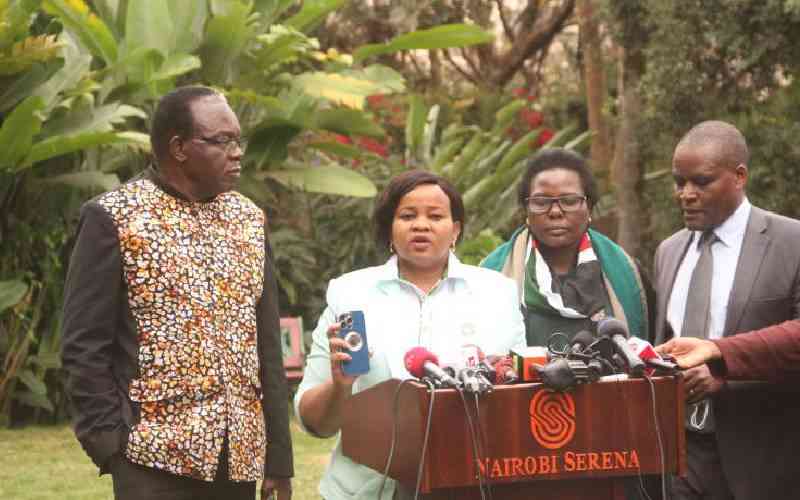×
The Standard e-Paper
Kenya’s Boldest Voice

IEBC Commissioners address members of the press on August 15, 2022 at Serena Hotel in Nairobi. [Edward Kiplimo, Standard]
A legal battle pitting President William Ruto's Kenya Kwanza Alliance and opposition leader Raila Odinga's Azimio la Umoja-One Kenya coalition party over the removal of four Independent Electoral and Boundaries Commission (IEBC) commissioners is crystallising.